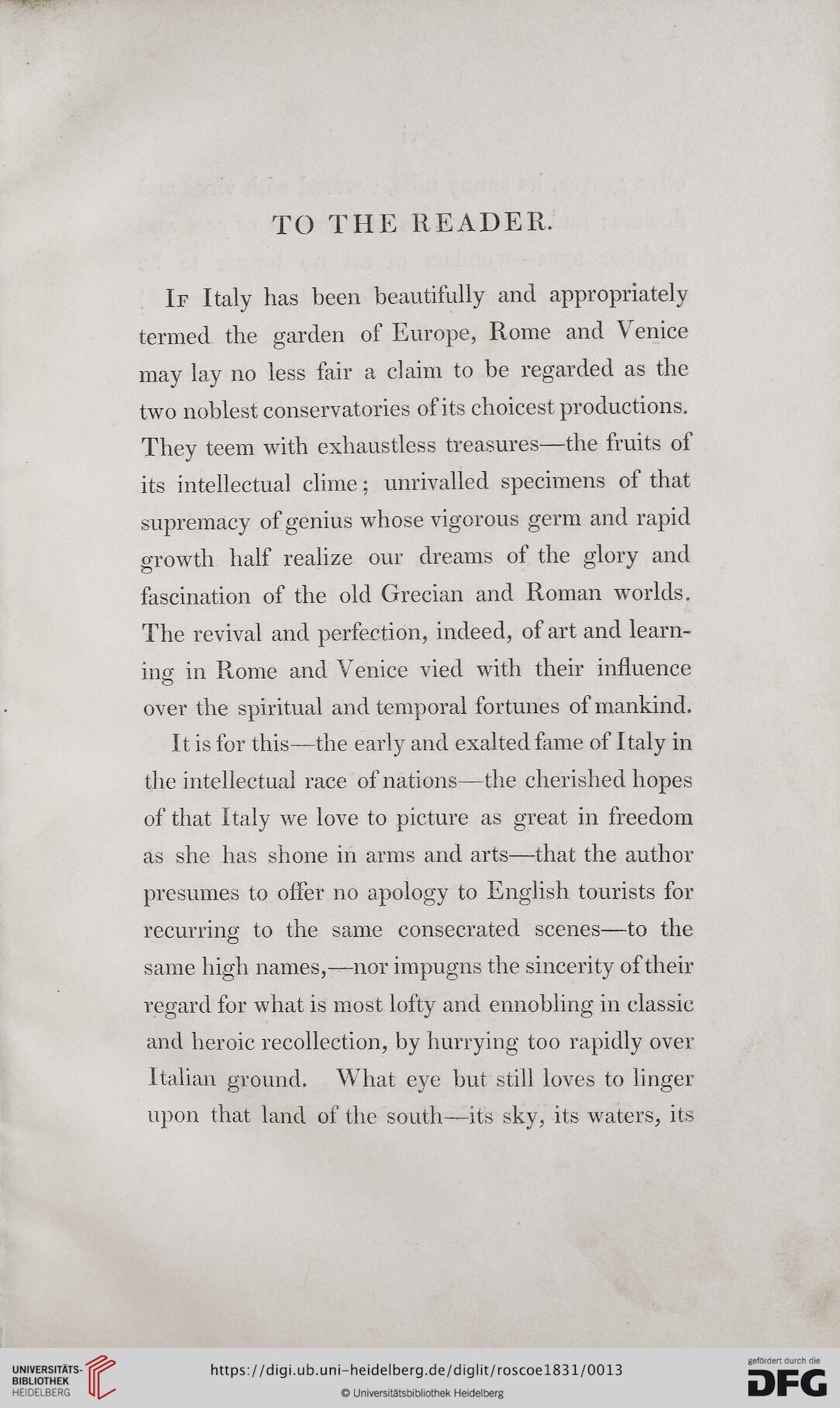TO THE READER.
If Italy has been beautifully and appropriately
termed the garden of Europe, Rome and Venice
may lay no less fair a claim to be regarded as the
two noblest conservatories of its choicest productions.
They teem with exhaustless treasures—the fruits of
its intellectual clime; unrivalled specimens of that
supremacy of genius whose vigorous germ and rapid
growth half realize our dreams of the glory and
fascination of the old Grecian and Roman worlds.
The revival and perfection, indeed, of art and learn-
ing in Rome and Venice vied with their influence
over the spiritual and temporal fortunes of mankind.
It is for this—the early and exalted fame of Italy in
the intellectual race of nations—the cherished hopes
of that Italy we love to picture as great in freedom
as she has shone in arms and arts—that the author
presumes to offer no apology to English tourists for
recurring to the same consecrated scenes—to the
same high names,—nor impugns the sincerity of their
regard for what is most lofty and ennobling in classic
and heroic recollection, by hurrying too rapidly over
Italian ground. What eye but still loves to linger
upon that land of the south—its sky, its waters, its
If Italy has been beautifully and appropriately
termed the garden of Europe, Rome and Venice
may lay no less fair a claim to be regarded as the
two noblest conservatories of its choicest productions.
They teem with exhaustless treasures—the fruits of
its intellectual clime; unrivalled specimens of that
supremacy of genius whose vigorous germ and rapid
growth half realize our dreams of the glory and
fascination of the old Grecian and Roman worlds.
The revival and perfection, indeed, of art and learn-
ing in Rome and Venice vied with their influence
over the spiritual and temporal fortunes of mankind.
It is for this—the early and exalted fame of Italy in
the intellectual race of nations—the cherished hopes
of that Italy we love to picture as great in freedom
as she has shone in arms and arts—that the author
presumes to offer no apology to English tourists for
recurring to the same consecrated scenes—to the
same high names,—nor impugns the sincerity of their
regard for what is most lofty and ennobling in classic
and heroic recollection, by hurrying too rapidly over
Italian ground. What eye but still loves to linger
upon that land of the south—its sky, its waters, its




